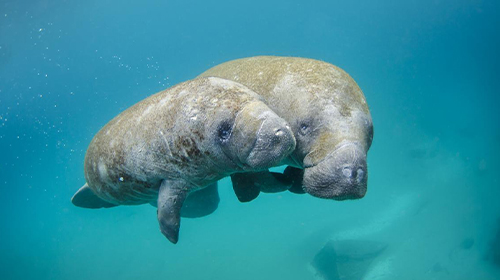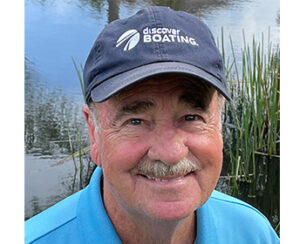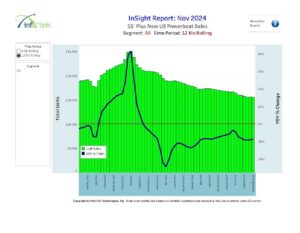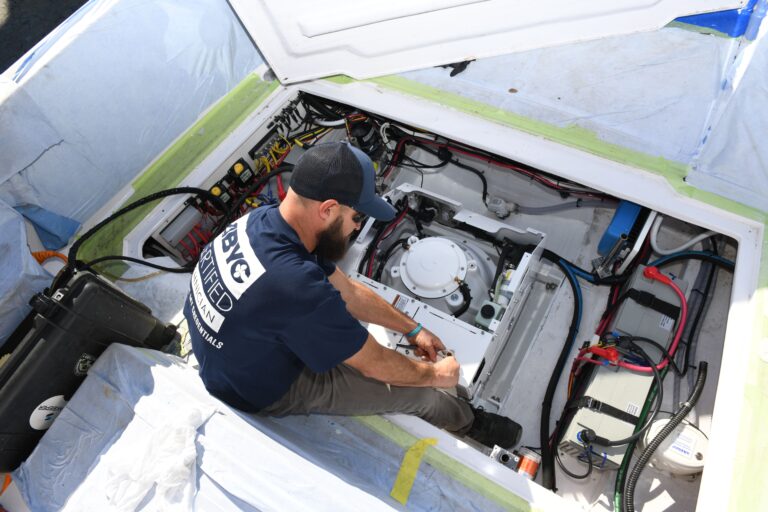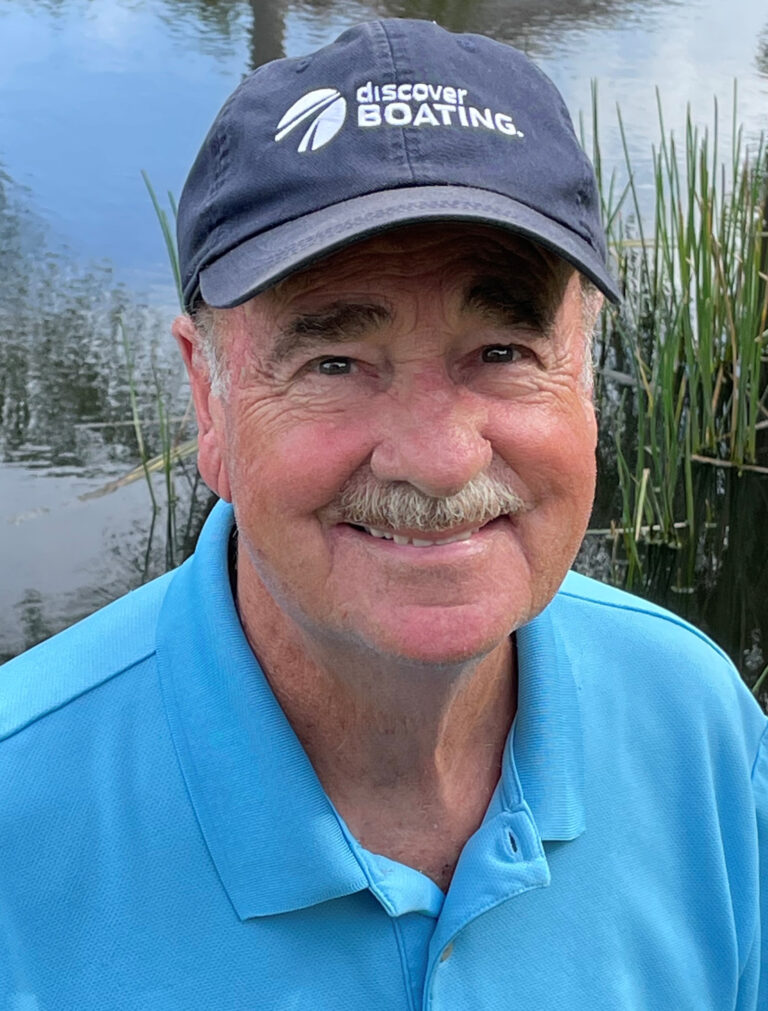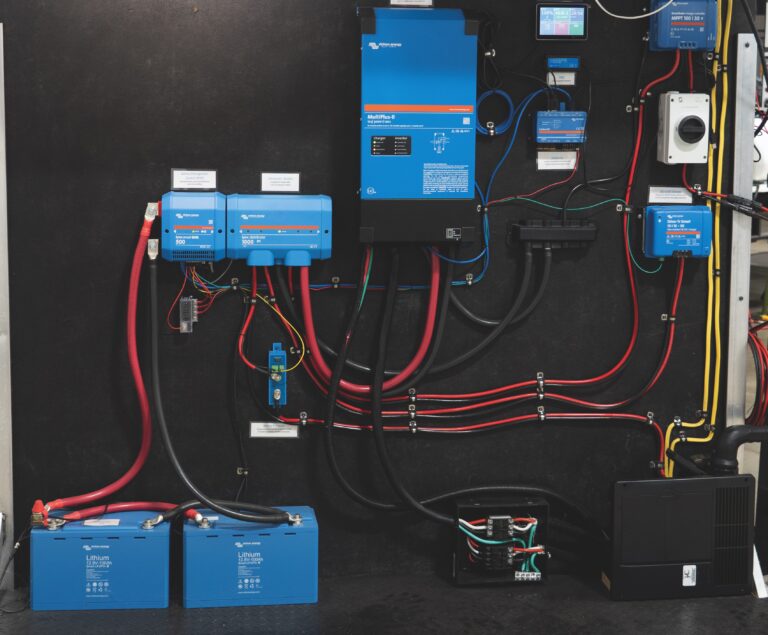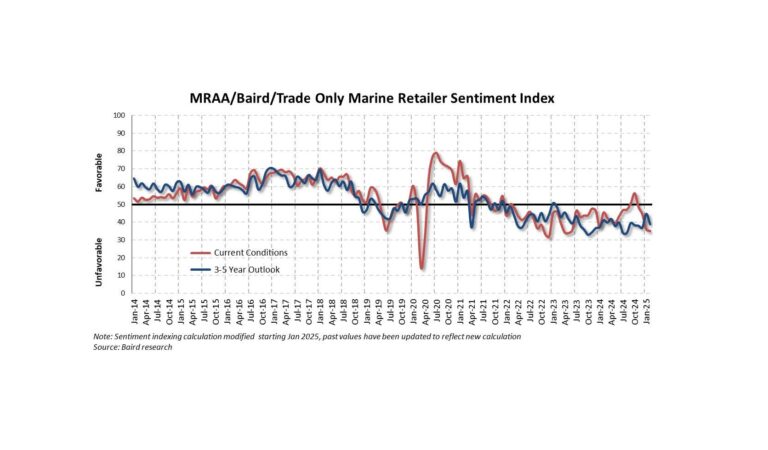In a surprise move, a federal district judge has ruled that Florida violated the Endangered Species Act by failing to regulate wastewater discharges into a waterway on the state’s east coast and negatively impacting protected manatees.
While future regulatory impacts of this ruling are unclear, any action surrounding manatees in the Sunshine State puts the boating industry on high alert because previous actions to protect them have directly affected boating statewide.
More than two decades ago, environmental lawsuits led to Florida creating a statewide array of “go-slow’ or “no-go” boating zones that have continued to be expanded on both of Florida’s coasts as some environmental groups erroneously cite boats as a cause of declines in manatee populations.
To be clear, boaters never want to hurt manatees — we love watching them. Moreover, manatee-boat collisions account for a small minority of annual sea cow deaths. However, the manatee population may be at record low levels in Florida. If boaters aren’t the problem, what is?
In a 21-page decision, Judge Carlos Mendoza, Middle District of Florida, backed the plaintiffs, the Bear Warriors United environmental group, that filed the suit in 2022. It contended pollution from sewage spills and septic tanks is killing the seagrass that constitutes manatees’ natural forage diet, leading to starvation deaths in the 156-mile Indian River Lagoon.
The ruling triggers mixed concerns about future impacts. On one hand, it raises questions about whether new rules that would directly impact Florida boating could be in the offing. It also focuses attention on the algae blooms that lead to manatee mortality. Clearly, there’s been a failure to control nutrient pollution. And any focus on algae blooms — a major problem across the nation — is welcomed.
This case might be about algae in Florida, but it could raise awareness in many other areas.
Artificial reefs in Lake Michigan?
The subject of creating artificial reefs for badly needed shoreline protection has come into play in the Great Lakes, where some 35% of the industry’s boat sales are made annually.
No, the reefs would be initiated as erosion control, but one thing’s for sure: Artificial reefs mean fish!
Some researchers are proposing this as a new way to curb coastal erosion, which affects most of the eight Great Lakes states. According to Hillary Glandon, a scientist at the Lake Michigan Biological Station in Zion, Ill., water levels in the lakes vary by several feet from year to year, and climate change is making these variations even more unpredictable.
“Cities across the Great Lakes are working to fortify their coastlines and prevent erosion,” Glandon says. “But traditionally employed coastal infrastructure, now typically breakwalls, can cost tens of millions of dollars, making them a heavy financial lift for local governments. And while these breakwalls help retain sand and build up the coastline directly inland of where they’re constructed, they also prevent currents from carrying sand and sediment farther down the coast compounding the effects of erosion there.”
Glandon and her team believe artificial reefs in the shallows can temper the intensity of waves and preserve the shoreline directly inland.
Illinois, for example, has 63 miles of coast along Lake Michigan’s southwest shore. Two pilot projects are underway at Illinois Beach State Park in Zion and off Chicago’s suburban Highland Park. They’re collecting data on how the reefs impact the local shoreline to see if they are a scalable solution to coastal erosion.
While artificial reefs are known to bolster biodiversity, their use for erosion control is relatively new. Lake Michigan is home to a handful of artificial reefs, most of which are far from shore as habitat for marine life. But perhaps they serve a dual purpose in boosting fish populations while preventing erosion. And angler success could beam boat-sales success.
The federal ruling in Florida and the artificial reefs in Illinois are just two examples of issues that could impact the boating business going forward. Algae-free waters and good fishing are always a win-win for sales.


